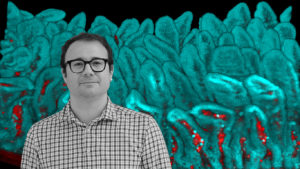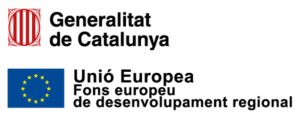Jordi Guiu, the new group leader of the Regenerative Medicine Program
September 17, 2020
 Jordi Guiu has joined to the IDIBELL’s Program of Regenerative Medicine and P-CMR[C]. He will lead the new group of Cell Plasticity and Regeneration. Jordi came from the University of Copenhagen and, he has strong expertise in the processes of stem cell specification. Welcome Jordi!
Jordi Guiu has joined to the IDIBELL’s Program of Regenerative Medicine and P-CMR[C]. He will lead the new group of Cell Plasticity and Regeneration. Jordi came from the University of Copenhagen and, he has strong expertise in the processes of stem cell specification. Welcome Jordi!
He studied biology and biochemistry at Barcelona Autonomous University. In 2008 he started his Ph.D. at Anna Biga’s laboratory at IMIM (Institut Hospital del Mar d’Investigacions Mèdiques) to study the specification of the hematopoietic cells. During the Ph.D., he acquired international experience through two stays in Elaine Dzierzak laboratory, at the University of Edinburgh, and Masayuki Yamamoto laboratory, at Tohoku University. After the Ph.D., Jordi moved to Copenhagen where he joined Kim Jensen laboratory at University of Copenhagen. There he studied the process of intestinal stem cell specification during development. During his career, Jordi had the opportunity to work with professionals from very different areas, from biology to physicists; this has allowed him to assess his research with a multidisciplinary point of view.
Jordi assures that curiosity, hard work and never surrender attitude are the perfect combination to success in science, “you have to try a lot to get a grant or, to publish a paper or, to solve your question”. But also affirms that he has really enjoyed every step of his career and, everything helps him to understand a little bit more about our world.
Intestinal toxicity after radiation therapy
Radiation therapy is a common treatment used in at least 50% of cancer patients and despite its efficiency in eradicating cancer it induces intestinal toxicity. Radiation triggers apoptosis of proliferative cells, this denudes the intestinal mucosa and in turn results in an inflammatory response. The number of cancer survivors with post-radiation dysfunction of the intestinal epithelium is continuously rising, however this condition to date has no effective treatments. The primary objective of the Cell Plasticity and Regeneration research group is to understand the mechanisms triggering these processes to develop therapeutic options for those patients.
Project cofunded by:


